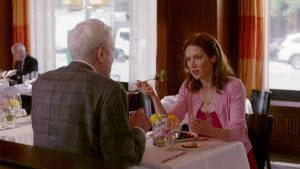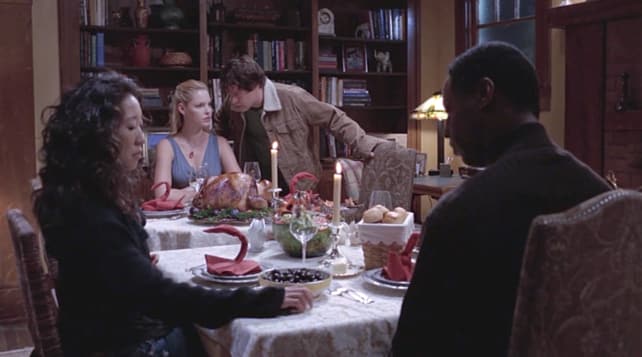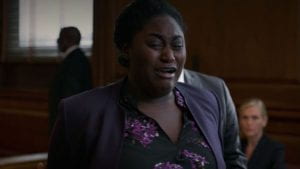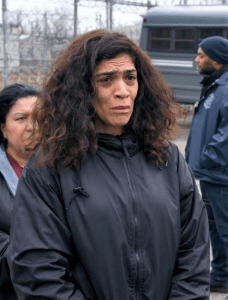Whiskey Lullaby, the sixth episode of the second season of Wynonna Earp, is a complex and messy affair. The little town of Purgatory, where all the demon revenant affairs have been occurring for more than a century, has been put under a sleeping spell for a very long time, enough time for our pregnant protagonist Wynonna to start showing. This is the result of the Widows’ magic, as they are trying to buy enough time to find and reopen a portal that Wynonna closed. As Wynonna Earp is more of a lighthearted, story telling, demon butt kicking show as opposed to one with an obvious social commentary, the argument of the episode is not immediately eminent. After a bit of pondering, I honestly feel like the show is arguing that strong women exist and being petty is sad in this episode. Wynonna just discovers that she is pregnant, and with the time that is stolen she is forced to fight a sorcerer and two witch wives while strongly showing (and the actress was actually really pregnant with her own baby while filming!). Later in the episode, one of the possible fathers of Wynonna’s child shoots and kills the sorcerer, who while is a demon, is also a harmless old man. He does that out of rage against Wynonna, and the writers show him as a heartless and jealous mess to convey the idea that it would be dumb to do petty things.

Nun reporting the murder of a priest at the hands of the widows.
Although the show is, once again, not a social commentary as much as it is a fantasy show about fighting demons, the underlying theme is undeniably a charge for feminism. With a female show writer, female lead actress, and a diverse cast, Wynonna Earp is one of the most empowering shows for gender equality on air right now. By adding a pregnancy storyline, the show once again tackles the scenarios that haven’t been represented on television before because of the lack of female fighter protagonists. With this, it is clear that Wynonna Earp is calling for society to embrace females as heroes.






















